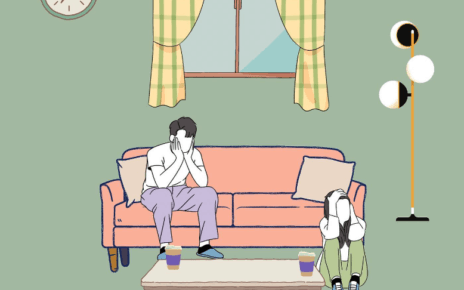When Justin Bieber’s ‘Yummy’ was released on Jan. 3, fans and critics formed differing opinions on the song. Since this was Bieber’s first solo single in three years, he aimed to get the song to the number 1 spot on streaming charts.
It’s no secret that dedicated fans take over social media when their favorite artists release new material. They aim to stream songs on repeat and buy songs multiple times in order to push the tracks higher up on charts. Yet, it is rare to see the artists encouraging this type of behavior.
Not only did Bieber encourage his fans to listen on repeat, but he reposted Instagram stories that one of his fan pages made that read, “Create a playlist with ‘Yummy’ on repeat and stream it.”
“Don’t Mute it, Play at a Low Volume, Let it Play While You Sleep,” “Buy the Song on iTunes,” “Buy the Song Multiple Times on Justin’s Website.” The question we all must ask: Is this fair for artists to do?
When thinking about the situation, it doesn’t seem wrong for artists to legally promote their own material. However, when you dive deeper and look at the facts, it can be difficult to believe it’s morally right.
Bieber’s case is not the first incident of this kind to occur in the music industry, as numerous artists have done similar things. DJ Khaled was guilty of bundling, a common practice of providing album downloads with purchases of merch or other sales. DJ Khaled was providing a digital download of his album Father of Ashad with the purchase of the energy drink Awake Energy Shot. Billboard disqualified sales of his album, preventing it from reaching the number one spot.
 Travis Scott was also wrapped up in a similar scandal. He released merch every 24 hours, switching up the apparel each time. One day he released graphic hoodies, the next it was dad caps and T-shirts. Every purchase came with a digital download of his album Astroworld.
Travis Scott was also wrapped up in a similar scandal. He released merch every 24 hours, switching up the apparel each time. One day he released graphic hoodies, the next it was dad caps and T-shirts. Every purchase came with a digital download of his album Astroworld.
This stirred up problems with his competitor, Nicki Minaj. Her album, Queen, came second on the Billboard charts to Scott’s. She claimed the strategy was wrong, and that Scott knows his album shouldn’t have beaten hers.
These tactics are honestly smart of artists to perpetrate, yet they come at the price of knowing they bought the number one spot rather than earning it. I see these tactics as ways of playing the system and cheating those who work hard to get their music out to the public and put on the charts. This is not to say that artists like Justin Bieber and Travis Scott do not work equally hard on their music, but that they probably only gained top spots on charts because of it.
The biggest concern for me when it comes to cheating the system like this is that the artists who sold their albums fairly might not get the recognition they deserve. And while some would argue that the artists are smart for playing the system, we all should know what is right and wrong.
Buying streams does not equate to your music being the best. And since charts like Billboard go off of how many streams a song or album gets, undeserving music could be placed on top.
Jonathan McElroy, M.M., Professor of American Music Tradition, noted that this is nothing new in the music world.
“The practice of ‘inflating’ a song or album numbers has been a common practice since tracking sales. As it relates to streaming, fans promoting such a practice is common, with the artist not getting involved,” McElroy said.
He continued, “What seems to be the issue is Justin Bieber promoting his practice himself. Simply put, the artist is involving themselves with what is traditionally a fan only practice. While promotion is important for an artist, unfortunately for Bieber, his attempt created the opposite effect of what he most likely wanted.”
It’s out of the artist’s control when fans go out of their way to buy or stream up their music. However, when the artist actually promotes that behavior, it may do even more harm than imagined.
To contradict myself, I think that when fans go to live concerts and shows and buy merchandise, it is not wrong for those items to come with a free copy of the artist’s album. This is only because it benefits fans in a clean way, since they will actually listen to and appreciate the music; whereas Justin Bieber and DJ Khaled bought their streams and promoted corrupt behavior.
These artists are role models for younger generations and are looked up to, and the message that they are conveying to their fans is that cheating the system is okay.
Instead of buying streams to ensure an undeserving song gets a number one spot, artists should just stick to releasing the music they want and hoping the public likes it too.
IMAGE TAKEN from Weheardit
IMAGE TAKEN from pinterest.com



